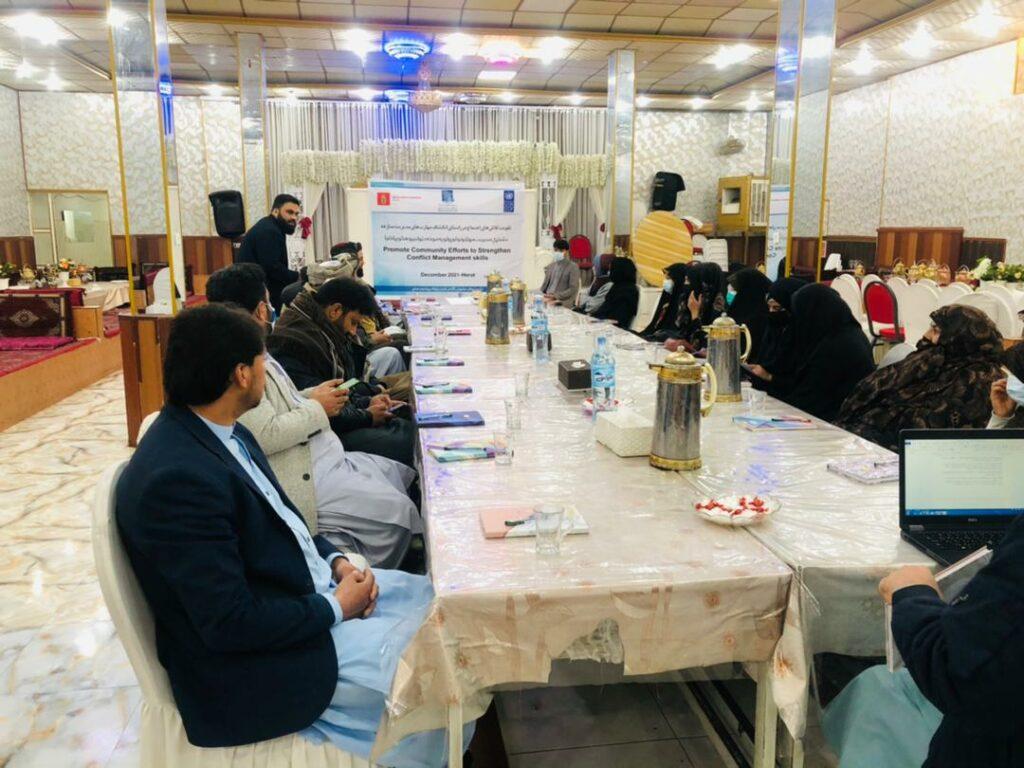HERAT CITY (Pajhwok): Participants of a gathering in western Herat province have expressed happiness with an end to war in the country, stressing the promotion of the culture of tolerance to preserve peace.
Elders, religious scholars, youth and women attended the event, organised in the provincial capital by Pajhwok Afghan News with the financial support from the United Nations Development Program (UNDP) and the Danish Embassy.
Fazel Rahman Fayyazi, a religious scholar, underlined the value of global peace from the Islamic point of view. To ensure peace, Islam emphasises on five principles: Preserving religion, human life, property, dignity and intellect.
He identified inadequate public awareness of Islamic guidance a major reason for increasing domestic violence and local disputes in the country.
Fayyazi insisted the word violence and discord had no place in Islam. Religious scholars should be tasked with discouraging such tendencies, he suggested.
The scholar said: “Allah has given wisdom to every human being and it should be used in everything to prevent violence. If a person loses his/her intellect, then there is no difference between him/her and an animal.”
He called on people from all walks of life to tolerate each other and avoid inciting divisions, which caused killings, bloodshed and destruction of society.
Director of Information and Culture Farid Ahmad Ayubi called the lack of public awareness about religion and human rights, disputes, ethnic differences, economic problems, sectarian strife and illiteracy the leading causes of violence in society.
Ayubi said the best solution was to reduce or eliminate local conflicts, promote education, launch awareness programs regarding rights of individuals and disseminate religious teachings.
He characterised as vital the role of tribal elders, religious scholars and academics in eliminating violence.
On behalf of women attending this programme, Maryam Ayubi said intransigence, forced marriages, poverty, unemployment and gender-based discrimination led to violence.
She noted there was no war at the moment in the country, and it was necessary for the people and the government to work together to resolve problems.
At the end of the programme, participants in group discussions identified causes of conflict and violence. They proposed solutions to such problems.
The called ethnic and linguistic prejudices, illiteracy, lack of religious knowledge, forced marriages and poverty the main reasons behind violence and social strife.
sa/mud







GET IN TOUCH
NEWSLETTER
SUGGEST A STORY
PAJHWOK MOBILE APP